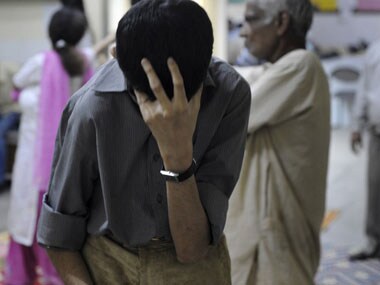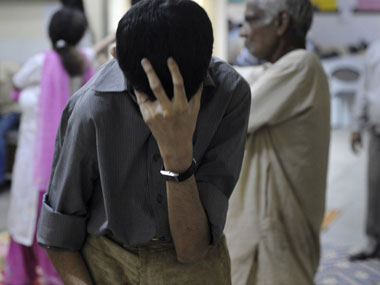On 8 August, 2016, the Mental Health Care Bill, 2013 was passed in the Rajya Sabha. Many people on social media rejoiced and it is, indeed, a cause for celebration. The largely-neglected field of mental health finally got some much-needed attention. The new bill, when passed in the Lok Sabha, will replace the rather outdated Mental Health Act of 1987, and when compared to the existing law, it is definitely reformist. The definition of mental illness is no more “any mental disorder other than mental retardation.” It is broader and more inclusive. Mental illness is defined as “a substantial disorder of thinking, mood, perception, orientation or memory that grossly impairs judgment, behaviour, capacity to recognise reality or ability to meet the ordinary demands of life, mental conditions associated with the abuse of alcohol and drugs, but does not include mental retardation which is a condition of arrested or incomplete development of mind of a person, specially characterised by sub normality of intelligence.” [caption id=“attachment_491597” align=“alignleft” width=“380”]  Representational image. Reuters.[/caption] One of the salient features of the new bill is that it decriminalises the attempt to suicide. This repeals Section 309 of the Indian Penal Code which provided for a year-long imprisonment for a failed suicide bid. This law had been criticised for a very long time. In 1971, the Law Commission had tried to do away with it. The Janata Party had tried to implement the recommendation in 1978, but it fell before both Houses could pass that Bill. Proposing that attempted suicide will not be criminally prosecuted helps the world look at suicide in a more kindly light. In order to understand why, picture this scenario: Sara’s a young girl who recently moved to a new city to pursue further studies. Not being as well-off as the rest of her classmates, she had to spend most of her time by herself because she could not afford to eat out and party as frequently as the rest of her peers. Adjusting to the new environment had been tough. The long distance took a toll on her two-year long relationship, and her boyfriend finally broke up with her over the phone. To make matters worse, the semester results were announced, and Sara discovered that she had failed two papers. When her mother called her in the evening, Sara was just not able to break the disappointing news to her parent. “Things can’t get any worse,” thought Sara. “My life is not worth living.” In a fit of impulse, she consumed a bottle of phenyl. When she was discovered in her room, people immediately rushed her to the hospital. The hospital authorities were reluctant to admit her, due to the legal complications that rose with a suicide attempt, nevertheless, after some coaxing, they began treatment until the police arrived. If Sara made it out alive, in the old scenario, the gift of being alive would be presented to her with a one year imprisonment for attempting to end her life! This would just add to more trauma and stigma of having to deal with police and courts. Criminalising suicide attempts actually stops many people from reporting, and this hinders people in distress from receiving the help that they need. The new law actually recognises suicide as a cry for help, and stresses on the immediate need to reach out and help the person overcome their issues. It does not treat the person as a criminal. The bill does not allow psychosurgery unless it is approved by the district medical board. The bill also bans the use of shock therapy for treating children with mental illness. It is still permissible for adults provided they’re given anaesthesia and necessary muscle relaxants. However, the most remarkable feature of this bill is the introduction of advance directives – this gives people suffering from a mental illness the right to choose their mode of treatment, and by nominating representatives who will ensure that their choices are carried out. Giving people diagnosed with a mental illness the freedom to choose conveys a strong message to the masses that suffering from a mental disorder does not rob an individual of decision-making capacities. It instils in the citizens that everyone, even those diagnosed with a mental illness, are entitled to a life of dignity, and they must not have to live in isolation, away from their families or the community, at large. The bill identifies inhuman and degrading treatment of the mentally ill as a crime, and for the first time, tackles the issue of mentally ill patients often admitted in institutionalised care forcibly, against their will. However, no matter how progressive the new bill is, it is still just a baby-step in the direction of reform. The bill only recognises the role of psychiatrists in the treatment of a mental illness. It still does not acknowledge the roles of counsellors and psychologists who also work with patients suffering from mental and emotional distress. Also, the bill largely addresses requirements of those people in mental healthcare facilities, but not every person diagnosed with a mental illness needs institutionalisation. While the bill mandates insurance companies to provide medical insurance or the mentally ill on the same grounds that they would issue insurance for physical illnesses, counselling services would probably not be covered even in the new insurance schemes. Implementation of the Act will also pose to be a problem. There is a shortage of mental health professionals in our country. “For every four lakh Indians, there is only one psychiatrist,” Dr Rajesh Sagar was quoted as saying in DNA. With budget cuts in the health sector, how will state governments successfully implement the dictates of this new law? The new bill largely adopts a biomedical model to treat mental illness. It does not talk about newer modalities like arts-based therapy, for instance, which helps people cope with stress, and speeds the recovery process. The bill provides facilities to the mentally ill, but how far does it address the stigma and discrimination a person with a diagnostic label is forced to endure? To what extent does it shape the nation into adopting a healthier attitude towards the issue of mental health? Only time will tell.
The largely-neglected field of mental health finally got some much-needed attention with the passage of the Mental Health Care Bill.
Advertisement
End of Article


)

)
)
)
)
)
)
)
)



